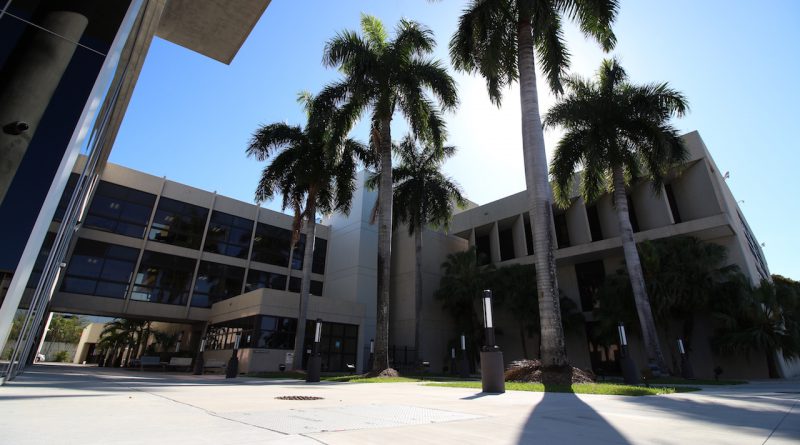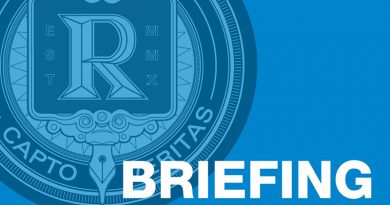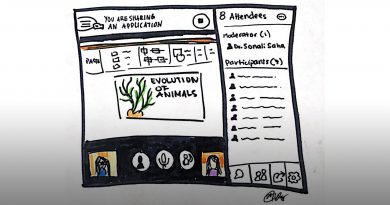MDC To Start Fall Semester Remote; Face-To-Face Classes Could Resume By September 28
With coronavirus cases continuing to spike in South Florida, Miami Dade College announced Monday morning that it will start the fall semester remote with hopes of resuming face-to-face classes in a limited capacity by Sept. 28.
The only classes that will be face-to-face on Sept. 1 will be courses that can’t be replicated online, such as aviation, culinary arts and fashion classes.
“This is still a very dynamic situation with many unknowns,” wrote Interim College President Rolando Montoya in an email sent to students and staff. “We remain committed to providing the highest quality education, while securing the health and safety of our students and employees.”
Elizabeth Ramsay—president of the United Faculty of Miami Dade College—criticized MDC’s plan. She said faculty was not involved in the decision making process, and believes MDC should hold classes fully online or in a hybrid format this fall.
“This makes it impossible for professors to plan effective delivery of their courses,” said Ramsay, who teaches English for academic purposes classes. “There are many different ways that we could approach the challenges that we’re facing right now, but this approach is irresponsible.”
But Montoya hopes the decision eases students’ concerns about returning to campus, especially those with preexisting conditions that make them more susceptible to the coronavirus.
Yesterday, the Florida Department of Health reported 10,508 new cases of coronavirus—the sixth consecutive day that Florida has documented more than 10,000 cases in a single day. Approximately 53,850 of those cases are in Miami-Dade County. That brings Florida’s total cases to 360,394.
“If COVID continues spiking as it is right now, [fall] classes would probably continue purely remote,”said MDC Spokesperson Juan C. Mendieta. “There is a hope that things improve to bring some of those classes back.”
The College continues to follow its three-phase recovery plan. They are currently in phase one.
Anyone who has entered the campus since June 1 has had their temperature checked at a designated entry point, and they are not allowed on campus without a mask.
Visitors are also asked about their travel history and whether they have any coronavirus symptoms and given a wristband.
If students, staff and faculty are allowed back on campus on Sept. 28 in a “limited fashion,” the College will move to phase two. Professors would notify students when they can come back.
Social distancing would be practiced, masks will be required and classes will be taught in a blended format allowing students on campus for face-to-face instruction on a rotating format. Classes will be limited to 10-15 students and rooms will be cleaned in between classes and at the end the day.
Services, like the bookstore, student services, learning resources and computer labs, will be open to the public at 50% capacity. Cafeterias, food pantries and coffee shops will only take to-go orders.
Large events and gatherings will be prohibited and there will be limited admission at museums, galleries and performing arts events.
“It’s a great idea,” said Kendall Campus Student Government Association President Anthony Valenzuela about MDC’s announcement on Monday. “It’s a very cautious step that [MDC] is taking, and not jumping the gun by saying ‘hey look, we’re starting on Sept. 1, whether you like it or not, everyone back on campus.’”
Students voiced their concerns on what MDC’s reopening plan should be during a virtual town hall hosted by Kendall Campus SGA on July 16. Valenzuela said results were mixed. Some students want to return to campus, while others want their classes online.
In a survey conducted by MDC last spring, half of the students that responded—around 4,750 students—preferred face-to-face classes. Four out of ten students found it hard to concentrate and stay motivated during the pandemic, and one in five students said they were concerned about their own familiarity with technology.
Florela Francois, a North Campus student who is blind, said she is not comfortable taking classes online because the disability accommodations provided to her through ACCESS Services—extra time on tests, tutoring, note-taking services—will also be remote.
The 29-year-old struggled when MDC switched to remote learning in March because it was hard to communicate with her online tutor. The experience left her filled with anxiety and hours of lost sleep. As a result, Francois did not take classes this summer, but will begrudgingly take classes this fall even if classes remain online.
“The professor might not know how I’m doing,” Francois said.
During the spring term, MDC enrolled 3,148 disabled students, and another 1,857 in the summer.




